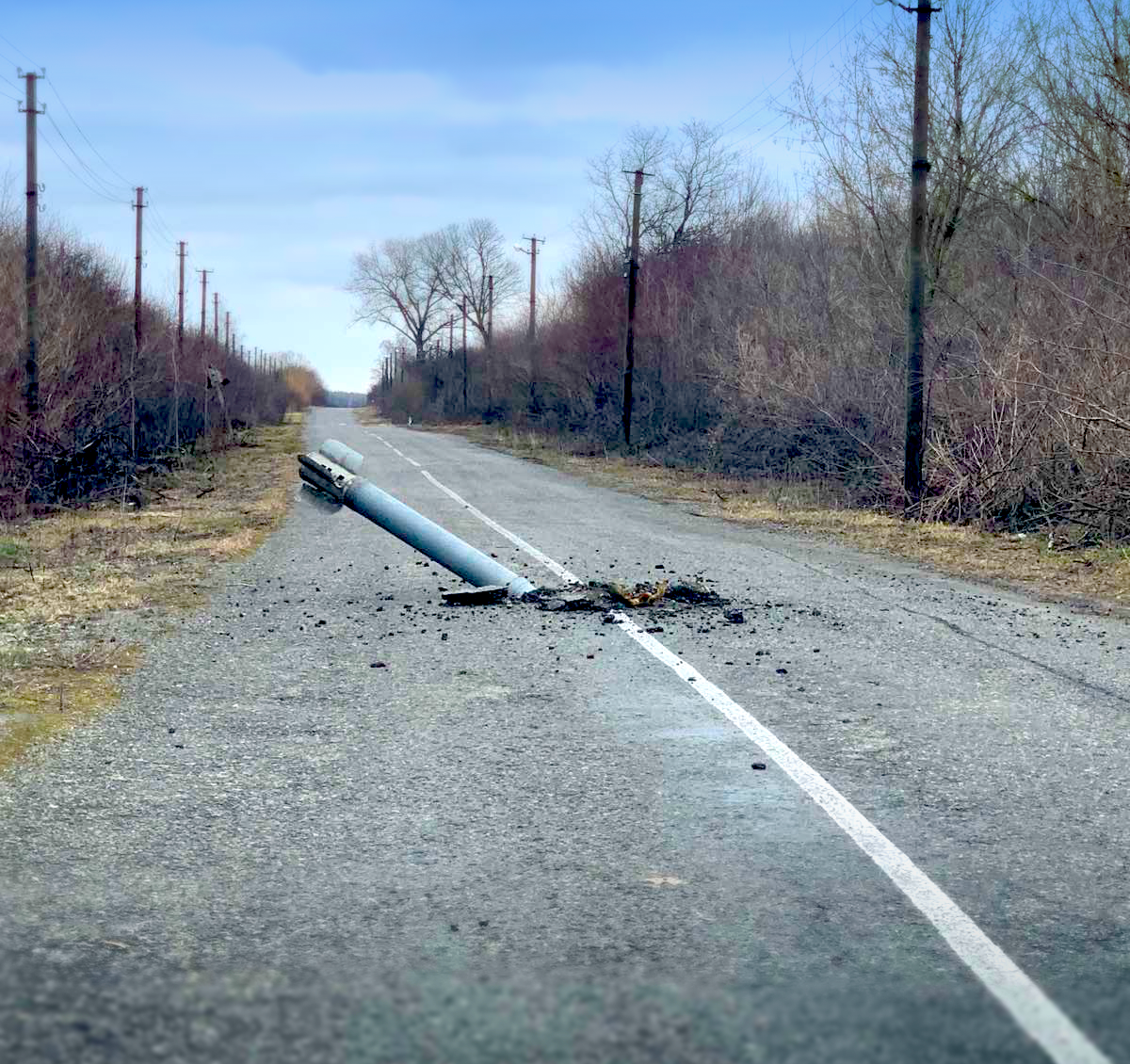The World Institute for Nuclear Security (WINS) will launch Voices of Ukraine: Volume I on 15 May 2023 at Sofiensäle in Vienna, Austria.
The book contains direct testimony of nuclear workers in Ukraine and examines the impact of the Russian war on the personal level as well as on global and nuclear security.
The launch features testimony from five nuclear workers and addresses by:
- Minister German Haluschenko, Minister of Energy of Ukraine
- Mr Petro Kotin, Director General of Energoatom
- Ambassador Yevhenii Tsymbaliuk, Permanent Representative of Ukraine to the International Organisations
- Ambassador Laura S H Holgate, US Ambassador to the Vienna Office of the United Nations and the International Atomic Energy Agency
“More than a year ago, President Putin launched a terrible war of aggression against Ukraine. By including the nuclear ruins of Chornobyl in the war, the Russian army put at risk the health and security of all people in Ukraine but also of Ukraine’s neighbours and the whole of Europe,” Alexander Van der Bellen, Federal President of the Republic of Austria, wrote in a letter of support. “The Voices of Ukraine project is an important building block in efforts to document these violations of international law and enable the international community to draw conclusions, both in terms of prosecuting possible crimes and of dealing with such acts of war.”
“Voices of Ukraine [will] draw the attention of the entire world community to the risks to which Russia exposes the entire energy infrastructure of Ukraine, especially nuclear,” Petro Kotin, Director General of Energoatom, said. “Only thanks to the courage of nuclear workers, who remain loyal to Ukraine, a disaster didn’t happen.”
The governments of Canada, Norway, Sweden and the USA funded this project.
It has not yet been possible to collect similar accounts from the staff of the Zaporizhzhia Nuclear Power Plant. As soon as it becomes feasible, we will follow up with an additional volume to share with you the voices of Ukrainians directly affected there.
“Unfortunately, there will be stories for more than one volume of your book. After the ZNPP de-occupation and the liberation of its satellite town, Enerhodar, we will learn firsthand what Ukrainians had to go through and what atrocities of the invaders they had to endure for the sake of preserving the world’s nuclear and radiation safety,” Kotin added.
About WINS

WINS is an international non-governmental organisation committed to building a global community of nuclear security professionals who are willing to work together to strengthen the security of nuclear and other radioactive materials. WINS’ primary purpose is to improve the professionalism and competence of all those involved in nuclear security so nuclear and other radioactive materials are not used for terrorist or other criminal purposes by any actor, whether State or non-State.
Quotes from the Book
In the book, individuals share their experiences and deeply personal choices – when to seek refuge abroad; whether to continue their work or join the armed forces – as well as their insight into the impact of the war on the nuclear sector.
“None of us could have imagined the coming nightmare. We had no idea that on 24 February we would be working in completely different conditions.”
-Anatolii Sydorenko, Shift Supervisor, Radiation Safety Department, Chornobyl Nuclear Power Plant
“This is a challenge not only for Ukraine, but for the whole world. Within this context the support of the global community is very important.”
-Renata Yaresko, Head of Public Relations, Energoatom
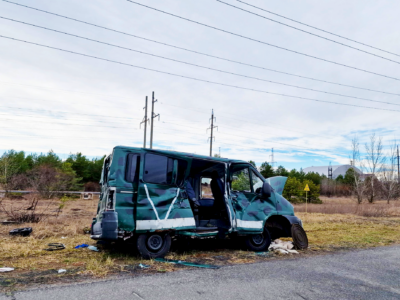
Wrecked vehicle on the road to Chornobyl. Source: SSE Central Enterprise for Radioactive Waste Management
“I believe that it is necessary to create the conditions under which the country’s nuclear facilities will be completely safe. International protection is a guarantee of reliable and uninterrupted operation of nuclear units, and that means global security.”
-Olena Vtoraya, Engineer, South Ukraine Nuclear Power Plant
“Everything we thought, felt, hoped for and dreamed about changed forever that morning. That moment divided the lives of all Ukrainians into ‘before and after’.”
-Nataliia Kuakova, Director of SSE Radon Association
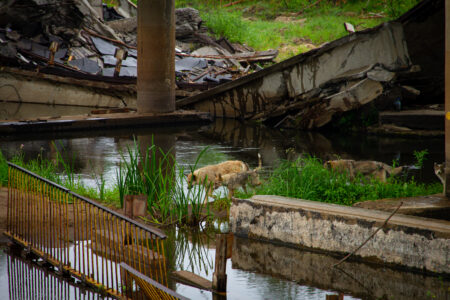
Wildlife navigate the destruction caused by the occupation. Source: Denys Vyshnevskyi
“Who could have imagined that this was possible in the 21st century, in the centre of Europe? As a person who is directly involved in the international cooperation sphere, I was shocked. The specialists from Rosatom who had come to us as our colleagues, as experts carrying out peer reviews, now seized the nuclear power plants at Chornobyl and at Zaporizhzhia alongside the armed forces.”
-Valentyna Odynytsia, Head of the International Cooperation Department at Chornobyl Nuclear Power Plant
“Not only Ukraine, but the whole world community faces the problem of nuclear facilities’ vulnerability during military operations . The guarantees for the safety of the Exclusion Zone should become global guarantees for nuclear and other radioactive facilities during hostilities.”
-Yuriy Shybetskyi, Senior Researcher at the Scientific and Engineering Center of Radiohydrogeoecological Polygon Research
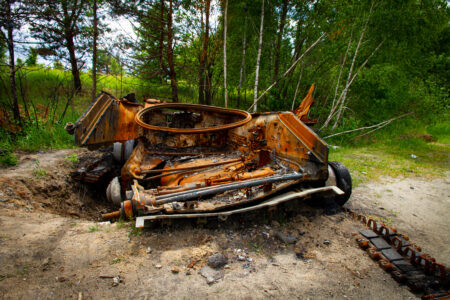
Destroyed tank on the road to Chornobyl. Source: Denys Vyshnevskyi
“The seizure of nuclear enterprises, shellings and attacks on nuclear site facilities and in the immediate vicinity of nuclear installations, kidnapping and torture of nuclear personnel – such events previously seemed absurd, but now they have become the bitter reality of our colleagues.”
-Yuliia Taratorkina, Lead Engineer in the Department of Work with Public and Mass Media at Khmelnytskyi Nuclear Power Plant
“The war against Ukraine has become a very important stage in history, political science, and military science to understand and test mechanisms for arms control, nonproliferation, nuclear deterrence, etc. In Ukraine we are seeing the shortcomings of these agreements, what should be limited, what works, what does not work, and what the trends are.”
-Polina Sinovets, Director of the Odesa Center for Nonproliferation
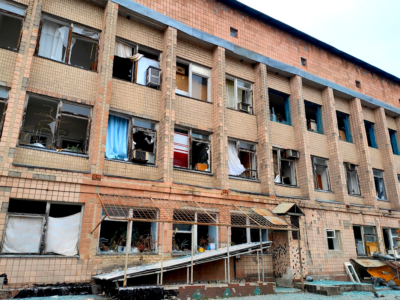
A damaged building at Chornobyl after the occupation. Source: SSE Central Enterprise for Radioactive Waste Management
This event is invitation-only. For media inquiries and interview requests, please contact suzanne.carlson(a)wins.org
Event photos
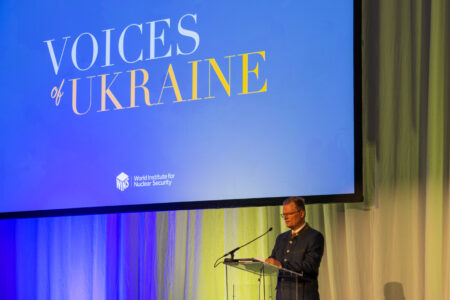
WINS Executive Director Lars van Dassen
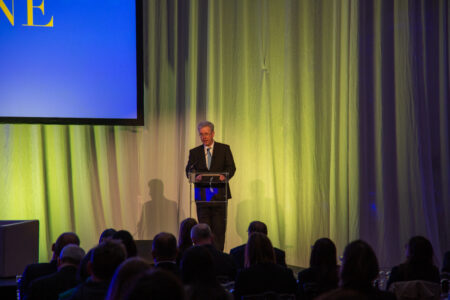
Ambassador Yevhenii Tsymbaliuk, Permanent Representative of Ukraine to the International Organisations
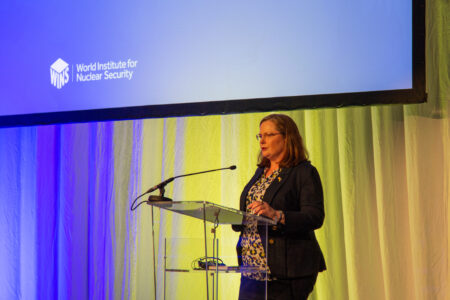
Ambassador Laura S H Holgate, US Ambassador to the Vienna Office of the United Nations and the International Atomic Energy Agency
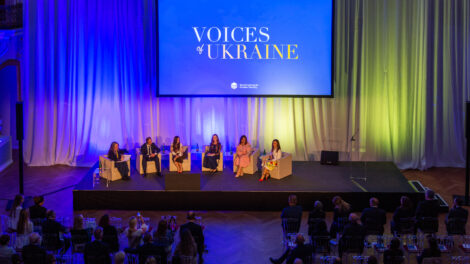
Panel of Ukrainian nuclear workers
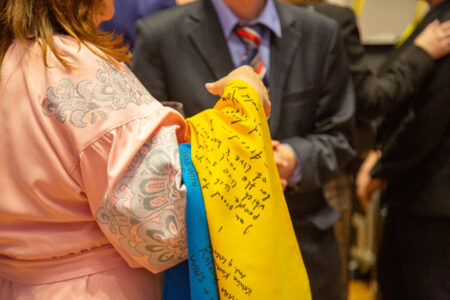
Flag signing at the event
